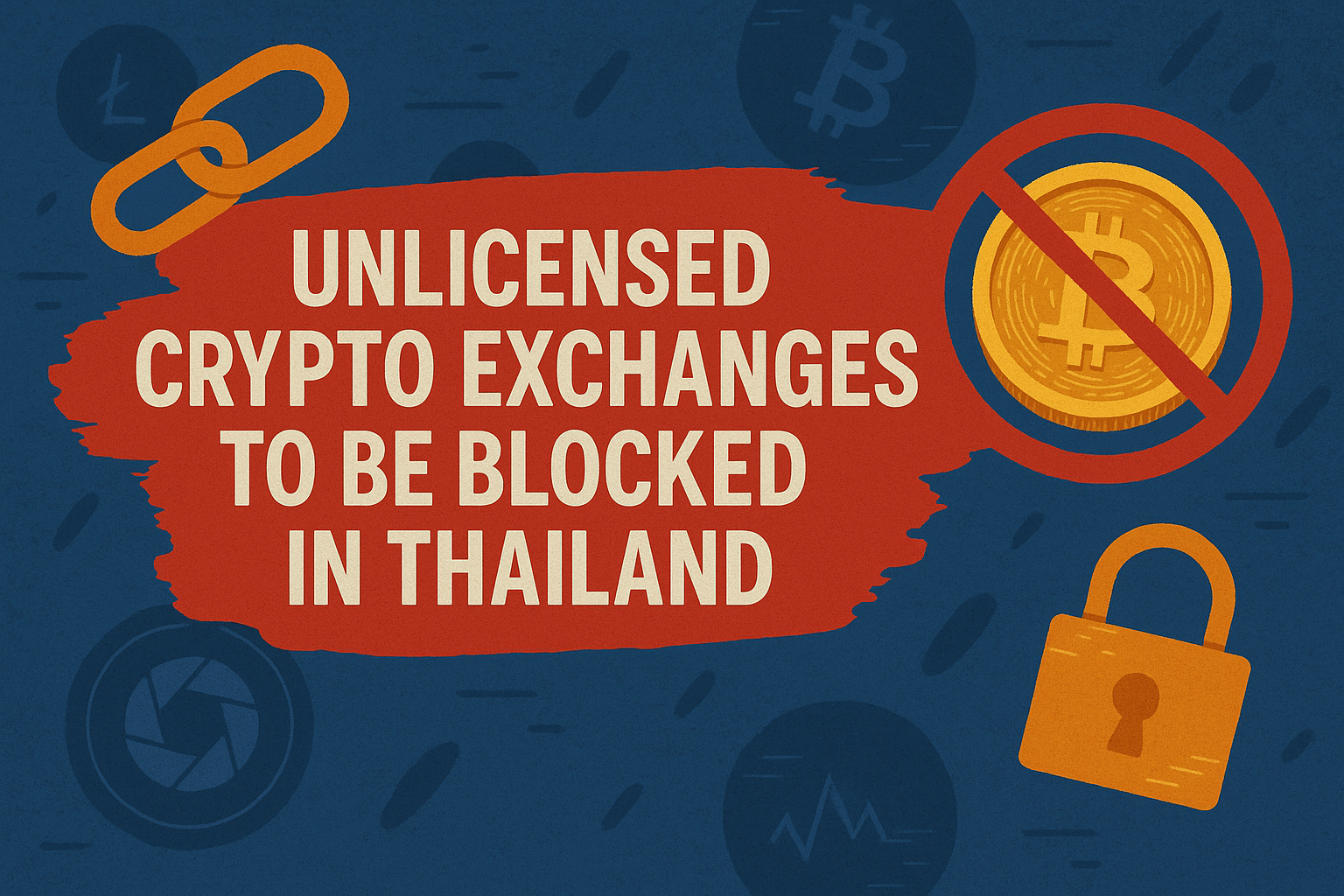
Unlicensed Crypto Exchanges Blocked
Thailand’s Securities and Exchange Commission (SEC) has announced a decisive crackdown on unlicensed cryptocurrency exchanges operating within the country. On June 28, 2025, access to five major platforms—Bybit, 1000X, CoinEx, OKX, and XT.COM—will be blocked for providing trading services without proper authorization. This move comes amid growing concerns over investor protection, money laundering risks, and regulatory compliance in the burgeoning digital asset market.
The rise of cryptocurrencies and blockchain technology in Thailand has been impressive, but with rapid growth comes regulatory challenges. Unlicensed exchanges not only pose legal risks but also jeopardize investor confidence and market integrity. By taking action against these unauthorized platforms, the SEC reinforces its commitment to building a safe and transparent crypto environment for Thai users.
Strengthening Investor Protection
The primary motivation behind blocking unlicensed crypto exchanges is investor protection. Cryptocurrencies remain highly volatile and prone to fraudulent schemes. Unauthorized exchanges often operate without adherence to anti-money laundering (AML) and know-your-customer (KYC) regulations, creating loopholes for illicit activities such as money laundering and terrorist financing.
Thailand’s SEC has long emphasized the importance of stringent regulatory oversight in the crypto space. With the new anti-cybercrime laws passed in April, authorities gained enhanced powers to quickly identify and shut down suspicious websites and platforms. The Royal Decree empowers the Ministry of Digital Economy and Society (MDES) to directly target unlicensed cryptocurrency exchanges, making enforcement more efficient.
This comprehensive regulatory framework aligns Thailand with global efforts to regulate digital assets, ensuring only licensed operators with proper safeguards remain accessible. Licensed exchanges are required to conduct thorough customer verification, report suspicious transactions, and comply with local laws, significantly reducing risks for retail and institutional investors alike.
New Cybercrime Laws Empower Enforcement
The recent anti-cybercrime legislation is a game-changer for Thailand’s approach to cryptocurrency regulation. Passed in April 2025, the laws grant authorities broad powers to act swiftly against unauthorized digital asset operators. This includes blocking websites, freezing assets, and pursuing legal action against offenders.
Thailand’s government is particularly vigilant in combating the use of crypto for illicit purposes. Unlicensed exchanges have been known to attract bad actors looking to exploit gaps in oversight. With the new legal tools, the Ministry of Digital Economy and Society can intervene more decisively, cutting off access to rogue platforms that fail to meet licensing requirements.
This crackdown has already intensified enforcement against offshore crypto operators targeting Thai users without registration. The message is clear: cryptocurrency trading within Thailand must be conducted through authorized and transparent channels, ensuring compliance with AML, KYC, and other financial regulations.
Blockchain Adoption in Public Finance
While tightening regulations on crypto exchanges, Thailand is simultaneously embracing blockchain technology for public sector innovation. The Ministry of Finance recently launched the G-Token initiative, a blockchain-based investment token linked to government bonds. G-Tokens allow investors to participate in bond markets via a secure, transparent digital platform.
Importantly, G-Tokens are explicitly designed not to function as currency. This distinction helps regulators maintain a clear separation between stable government-backed instruments and volatile cryptocurrencies, addressing concerns around financial stability.
The adoption of blockchain for public finance demonstrates Thailand’s forward-thinking approach to leveraging digital technology for transparency, efficiency, and inclusivity. It also signals a dual strategy: regulate high-risk crypto trading platforms stringently, while promoting blockchain’s beneficial applications in government and finance.
Enhanced Regulations for Market Integrity
Beyond blocking unlicensed exchanges, Thailand’s regulators are tightening controls on all market participants. Stricter customer verification processes have been mandated to prevent anonymous trading and illicit activity. Suspicious accounts are now subject to faster suspension or closure, minimizing potential damage.
Moreover, regulatory liability has expanded beyond exchanges to include banks, telecommunications providers, and social media firms. These entities are now accountable for monitoring and reporting suspicious crypto-related activity on their platforms, helping create a comprehensive ecosystem of compliance and transparency.
This multi-layered regulatory approach aims to build investor trust and encourage responsible innovation in Thailand’s rapidly growing digital asset market. By aligning regulations with international best practices, Thailand positions itself as a secure and attractive hub for cryptocurrency investment and blockchain technology development.
Conclusion: Thailand’s Balanced Crypto Strategy
Thailand’s decision to block unlicensed crypto exchanges is a significant step toward safeguarding its digital asset ecosystem. The enforcement action against Bybit, 1000X, CoinEx, OKX, and XT.COM highlights the government’s zero-tolerance policy on unauthorized trading activities.
At the same time, Thailand is leveraging blockchain’s potential in public finance through projects like G-Tokens, showcasing a commitment to responsible innovation. The combination of strict enforcement, modernized cybercrime laws, and proactive blockchain adoption demonstrates a balanced approach to regulating and fostering the crypto industry.
As Thailand continues to develop its regulatory framework, investors and businesses can expect clearer guidelines, enhanced security measures, and more opportunities in the evolving digital economy. The message is clear: cryptocurrency activities must be conducted transparently, legally, and with investor protection as a priority.

